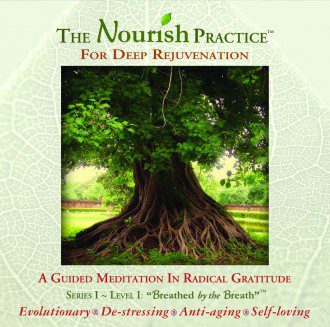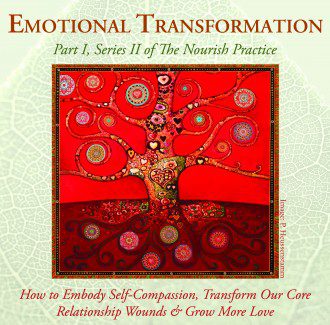By Jack Adam Weber L.Ac., Dipl. C.H.
Contributing writer for Wake Up World
“We humans must learn we are not separate from the Earth and all it’s inhabitants — the land that we walk upon and the waters that we drink. When we show respect and care for that which sustains life, we learn that we will be taken are of. When we exploit, pollute, and destroy the environment, all this comes full circle. That’s revolution… in need of revolution.” ~ Summer Danner
I’ve been thinking about revolution for some time. I bet you have too. I feel like running through the streets screaming bloody murder and pushing my way in a mad frenzy through the doors of the White House and Monsanto headquarters — and every other godforsaken place on this gorgeous Earth — and beating the shit out of everybody with my bare hands. It’s just a feeling, you know…
But, of course, reason, compassion for ignorance, and fear for my own life stop me long before I get anywhere close. Yet this anger lives in me, a deep anger fueled by my love for life, for my love of nature, and everyone of you, ordinary people like myself who try to do good each day, who aren’t responsible for our modern-day ecocide. And in reality, yes, there is an “us” and “them.” Not admitting that difference, in an act of anemic niceness, makes us pathetically complacent, if not inappropriately self-shaming. For, while each of us contributes in a small way, and possesses the possibility for evil, we choose not to act on it.
[pro_ad_display_adzone id=”110028″]
What is this evil? It’s stripping the Earth, killing the animals, polluting the waters, air, and soil, obliterating silence, desecrating the wild places, bombing cities and each other, abusing power in all ways, clear-cutting the forests, being dishonest and being okay with being numb. And here is latest news on the Monsanto and United States EPA (“Environmental Protection Agency”…yeah right) cover-up of the cancer causing properties of glyphosate, the active ingredient in RoundUp. Some, like Dr. Guy McPherson, say it’s too late to save humanity and much of the biosphere as we know it. But even if we can’t ultimately save it, there are many reasons to consider doing so, as I’ll discuss soon. (See: Edge of Extinction: It’s Not Your Fault.)
Deep Anger
Sometimes we get to know what something is by what it is isn’t, and this makes all the difference in how we understand and act on that knowing. This goes for revolution too. And it relates to something I went through this week when a good friend posted a powerful message on my Facebook wall with the title “Deep Anger.” That post segues with the article I wrote a few weeks back “Love Is Not Enough,” unless of course, as I mentioned in the article, our love also embraces such unlikelies as anger, grief, fear, remorse, guilt, and action, as it does for me. So, here’s the snippet from “Deep Anger,” and the full article is here:
We need to rediscover something we lost along the way. In a better world, there’d be no reason to write this. In that world, plastic bags would be outlawed, rednecks would voluntarily stop driving those obnoxious Ford F-350s and the yogis in yuppie neighborhoods would stop believing that a hybrid SUV could save the planet. But that’s not the world we live in. In this world, when push comes to shove, most of us are too comfortable to care, too polite to speak out. With so much at stake we need to rediscover something we lost along the way: our anger…
So if we’re going to get serious about disrupting an increasingly apocalyptic horizon, we’ve got to challenge the feel-good Hallmark sentiments that inundated my generation. We have to say fuck the TED talks, with their sincere but vacuous optimism. Fuck the positivity gurus claiming the world is not dying, it’s only changing. And fuck environmentalists willing to play nice with Big Oil and Big Energy, saying things like: “you’re not going to stop the tar sands. It’s naive to think you can,” as Davis recently proclaimed. This type of thinking sounds a lot like those fearful souls who thought apartheid was too entrenched to defeat, that Big Tobacco was too rich to take on, that austerity was too fixed to shake — that there’s nothing you, or I, or we can do in the face of a multi-trillion dollar industry. Truth is, nothing on this Earth is inevitable.
Last year, I watched in amazement as a group of radical First Nations scholars brought down the house in Vancouver at an academic conference called Global Power Shifts. Rather than reply with academia’s standard response when confronted with a social issue — “that’s problematic” — they had the guts to take a stand. One in particular, Dr. Glen Coulthard of the Yellowknife Dene, delivered a paper saying that folks on the front-lines of land, climate and environmental battles in Canada are tired of being told not to be angry; that given the ongoing process of colonization, theft and exploitation, anger is not only a natural response, but the only moral response.
What he hinted at was a resurgent anger. Deep Anger. The type of anger that overturns tables, defends the weak from the strong, would rather die than live on its knees. Most mainstream environmentalists don’t like this kind of language. It means you have to do more than sign a petition. It means you can’t count miniscule corporate concessions as victories. It means you have to let yourself unravel a bit.
In our culture, anger is seen as impolite, brutish, violent and indulgent. It’s politically incorrect. It makes people squeamish. We’re afraid of anger like we’re afraid of obsessive passion and overt eroticism. Anger is dark and dirty, but Deep Anger is a form of empathy, care, even love.
This post got me impassioned. It touched that rage in me, which is part of my love, and I feel seen and more connected as a result. I agree what it says about TED talks too, always ending on a positive — not because positivity is realistic, but because that’s what keeps people coming back for more, even if it’s a lie, which creates a pseudo-reality, which brings us to where we are today, on the edge of never-never land ecocide. Maybe a little realistic negativity would wake us up some more, rather than have reality always tempered so we don’t have to face the specter of fear, for which we have another load of bullshit to delude ourselves: that fear is the opposite of love. Nonsense. Fear has wisdom in it and while it’s totally appropriate to get bloody fucking mad about our world falling apart, it’s also totally healthy to be afraid. That fear mobilizes us, along with our grief, along with our humble and life-saving rage to act, preferably with wisdom, which wisdom is not static and gets more and more appropriately knee-jerk as the months pass.
I also appreciate the message of Deep Anger not just for its power, but for its bringing anger out of the dark into conscious awareness. I posted it to several friends and discussed its implications with them. Then, after I got over the rose-light of what I like about the message, it dawned on me that the message, while inspiring, is still largely “only anger.” It says what is not enough but not what is or might be enough. It fails to offer a plan, and it fails to mention grief, though it does mention love in the context of anger, for which I tip my hat. And this got me thinking that as much as many of us want to just destroy with our bare and bloodied hands the system that’s destroying us in a bout of justified anger (if you’re open to registering such emotions in your psyche), we can’t. Not without getting locked away for a good time or flat-out shot. Unfortunately, if we continue like this, it will likely come to that desperate moment for each of us, or our children.
“In this world, when push comes to shove, most of us are too comfortable to care, too polite to speak out.” ~ from Deep Anger
I don’t think that this statement is entirely true. I agree that most of us are too comfortable to speak up, and especially to act, in the simplest instances of injustice, if it means being inconvenienced or momentarily derailed from our daily planner. I agree that many of us have tossed the sacred fire of our anger out with the bathwater of shame, insecurity, numbness, and pleasure. I agree that anger is a starting place for right action. But I think most of us do care; we just don’t have a smart plan to act out our outrage and also stay alive. Admittedly, I am not yet as brave as Martin Luther King Jr. and Ghandi who went to jail for justice (30 and 4 times, respectively). If you do, all the power to you. That’s deep heroism. And I am getting closer.
We need more than “deep anger,” and a whole lot more than ordinary anger. One of these additions is grief, which breaks our hearts open and catalyzes the deep caring and compassion of love in our hearts to connect us with one another and the world we are losing. Grief helps us clear our pain so we can continue caring. Grief feels sad, and in a society that is quick to grab for a bottle pills to deal with any uncomfortable emotions, we are losing lots of good people to the pharmaceutical companies, lots of activists who could turn these difficult feelings into action.
Grief also tempers our deep anger in time for wisdom to set in, so that our grief can act hand-in-hand with deep anger. The other thing we need is an action plan, a smart action plan. At the same time, we can’t wait for the plan to be so smart, or too wise, or so perfect that it never acts, or acts too late. So, a balance of deep grief, deep anger, deep smarts (wisdom), and do-able action fill my vote for Real Revolution. I am declaring myself permanently open to suggestions for the best way to turn the tables, soon. So, please comment at the end of this article.
[pro_ad_display_adzone id=”110030″]
Real Revolution
So, all this got me thinking, what does realistic revolution in first world countries look like? This week I read about brave locals getting hauled off to jail here in Hawaii for blocking access to work crews trying to begin construction on a massive 16-story telescope project atop the mountain Mauna Kea that is utterly sacred to native Hawaiians and also to non-Hawaiians who live here. One video, TMT Opponents Halt Groundbreaking Ceremony, shows Joshua Manguil speaking at the commencement ceremony that he and others interrupted. Try using this speech as a TED talk!
“You want to go look in the sky, but you can’t even take care of this place (earth).” ~ Joshua Lanakila Mangauil (the young warrior in the video link)
And here is a totally inspiring short video of the brave Greenpeace crew who are currently riding the Shell Oil rig out in the freezing Pacific.
A few years ago we also watched our brothers and sisters get carted off during the Occupy movement, reminiscent of the sixties, which was the last rebellious stand our country had seen for some time. All of this makes a difference. We need to keep occupying, but also differently. In addition to demonstrating, we need to hit them harder where it counts, in the pocketbook, because that’s ultimately what they care about. So, how brave are you, how willing are you to sacrifice some comfort, some modern day amenities to forego buying their stuff and encourage others not to? I am willing, I am doing it and always inspired by others who set examples and remind how to do more.
Since we can’t just destroy the destroyers with our bare hands, what the hell more can we do? How do we put anger and grief to work for us? How do we turn around the system that is literally killing us and the biosphere? Seeing the destruction should enrage every sane person. And, seeing that it’s not going to happen only by getting angry, not even deeply angry, nor by getting arrested or beat up by police, nor by the sociopaths having a change of heart, nor by walking into the Pentagon and boxing everyone down, let’s get realistic so we can put energy into what might realistically work, or work better. Anger without smarts is just dumb. And anger without action is self-abuse.
So I thought about it, and realized that so much of what we already do is the realest possibility for revolution. And we need to up the ante, a lot. Because, when the shit really, really starts hitting the fan (it’s already really hitting), kamikaze and life and death action is what we’ll have left. So, by getting more desperate now, we might save getting maimed later.
Sometimes we mistake the desire of our larger-than life emotions — like deep anger — to be just that, larger than life, like the emotions and their imagination I expressed earlier. When we size that down to what will actually work and translate into action, it often falls far short of our desires, the hype. So, let’s take care of ourselves, be smart, and just a little crazy. (But, hey, if you’re called to be really crazy, go for it.)
I have seen change happen from signing petitions and from creating petitions. Just today I got word that our petition to stop the Navy’s sonar and explosive testing from brutally damaging whales and dolphins succeeded. Yesterday Governor Ige here in Hawaii announced no construction for the next week on the telescope. Signing petitions is often seen as small-time, but it has big-time results, just ask the whales and the mountain. A few years ago I engaged a wild, dream-come-true endeavor in a fit of outrage — some sane craziness with little potential for negative side-effects. In the middle of the night, precisely from midnight to 2 am, I created an Avvaz petition, that ended up getting a good few bounces and connections and was soon sent by Avaaz to tens of thousands of people all over Mexico to stop GMO corn from being planted there. We got over 45,000 signatures in a few days. That document was later delivered to the Mexican Cabinet for Agriculture, along with other petitions and cries for action, where it reportedly helped postpone the approval and planting of GMO corn that year.
When we realize that the feeling of our larger-than-life emotions — such as my deep anger imagination of beating up everyone at Monsanto — are unrealistic, and are not going to destroy the bad guys in the way that we imagine, then we can focus more umph on actions that do work. This week I came to see that a lot of those actions are ones many of us are already doing. Every bit helps. And by moderating our anger with creative thinking, we can come up with more. So, if you’re not just a bunch of hot air and you genuinely care about making things a little or a lot better and walking your morality and anger, then get active, even with the small stuff. Because, at the end of the day, it’s all we got right now.
Corporate Dessication
In reflecting about revolution, one act in particular stood out for me the rest this week: beating the corporations through boycott. Besides trying to block their lobbying and lying (also totally important), the biggest way we can hurt them, and one that is right in our control everyday, is how we spend our money. Yeah, it’s inconvenient. It’s going to tax us. But, what the hell, that’s obvious, and if you can’t handle some inconvenience then maybe you need to open your eyes, get out to nature, read the news, and ditch whatever numbs you from reality. These activities will help open your heart, which will help you get more on board with your grief and deep anger, which will bring you alive. They will open you more to ordinary and wild love.
Starving the corporations is not new news, but it became newer for me this week as I went through the process of contemplating realistic revolution, at the end of which I realized, with invigorated meaning, the value of the things we can do. Starving the baddest corporations on the grounds of boycott is what I did to start “GEM,” the GMO Eradication Movement, founded on the 11 Steps to cease GMO consumption. It’s what GMO-Free USA is doing also, with lots of support. So, that’s my first contribution — upping the boycott strategy — to the list I am soon going to ask YOU to add to.
So, if what Dr. McPherson and some other scientists are saying (you really want to watch this) is right, it might be too late to save the parts of the biosphere we humans need to survive through revolution, which includes us human beings. But this doesn’t have to justify our giving up and plunging into hapless despair. We may feel despair and grief and all these feelings are appropriate and will guide us to wisdom for what to and how to be. I say we persevere through all this with even bigger hearts for four main reasons (and there are more).
1) Honor and integrity: to do what is right and loving for others and the Earth even in the face of defeat and horror — actually, make that especially in the face of horror and defeat.
2) Create goodness: to make life a little more comfortable for all of us before we die, because even without the threats of global nuclear poisoning, GMO food corruption, and WW III, you and I are going to die one day anyway. So, let’s make it more organic and enjoyable, with less horror, by exercising our uncomfortable voice and right action to stand up against the men and women who are tearing down the world.
3) Nature: for all the other living creatures who definitely didn’t create our modern toxic horror and who suffer at our behest every minute of every day. That we act to do whatever we can to make their lives a little easier.
4) Saving humanity and the planet: It might not be too late, and what degree of recovery is possible remains unknown.
At the end here, I was going to list my ten re-invigorated calls to action, but I changed my mind. I have a better idea, I hope! 😉 I want your help. Tell me your ideas for Real Revolution, and I’ll collate the eight to ten best ideas for a follow-up article, and attribute your idea to you, by name, if you want me to. (If you don’t say so, I’ll assume you’re okay with being quoted.)
So, please, comment below, and join the conversation on Facebook. Share what’s on your heart, what’s stirring in your blood. Tell me what I’m missing. Show us that you’re out there, that you care enough to take a few moments to think about and join the conversation — because this is just the beginning. The Real Revolution is going to take a lot more than this. I look forward to reading your comments and getting Part II together.
With Big Deep Love,
Jack
The Nourish Practice
Jack Adam Weber’s “The Nourish Practice” is an easy, guided meditation-Qi Gong practice in radical gratitude and self-love. It is an Earth-based, body-centered practice — at once physiological and mythological — that is deeply relaxing and replenishing, especially for modern-day burn-out syndrome, and requires little physical effort. “The Nourish Practice” resets your nervous system and fosters a rich inner life.
You can purchase The Nourish Practice as a CD or Digital Download here.
The first installment in Jack Adam Weber’s new “Emotional Transformation” series, entitled “Healing from Heartbreak”, is also available here — a valuable guide to embodying self-compassion, healing and love.
Recommended articles by Jack Adam Weber:
- The Modern Shaman: Fierce Love at the Frontier of Madness
- When We Love an Addict – Courage and the Limits of Compassion
- Arrogance in Relationships: How to Deal With and Heal It
- 11 Reasons Why Hippies (Not Psychos) Should Rule the World
- The Monsanto Years: Singer Neil Young Rips Into GMOs, Big Biz and Conformity
- ReVOLUTION: When Enough is Enough
- Sex – Truth and Dare, Pleasure and Purpose
- Relationships: The Costs of Staying When We Should Leave
- Yin Yang — Ancient Wisdom for Personal and Planetary Transformation
- Heartbreak – Loving Ourselves Through Difficult Times
- Sacred Space – What Is It and Why Do We Need It?
About the author:
 Jack Adam Weber, L.Ac. is a Chinese medicine physician, author, celebrated poet, organic farmer, and activist for body-centered spirituality. He is also the creator of The Nourish Practice, an Earth-based rejuvenation meditation, and Healing from Heartbreak, the first installment in his new “Emotional Transformation” series.
Jack Adam Weber, L.Ac. is a Chinese medicine physician, author, celebrated poet, organic farmer, and activist for body-centered spirituality. He is also the creator of The Nourish Practice, an Earth-based rejuvenation meditation, and Healing from Heartbreak, the first installment in his new “Emotional Transformation” series.
Jack is available by phone and online (Skype etc.) for medical and life-coaching consultations.
You can connect with Jack at:
- Website: JackAdamWeber.com
- Facebook: Facebook.com/JackAdamWeber
- Twitter: Twitter.com/JackAdamWeber
- Email: [email protected]
[pro_ad_display_adzone id=”110027″]









